‘People need help now, they can’t wait’: Land, Water and Borders along the Silk Road
In 2019, AKF's Nick McGrath travelled to the Uzbek-Tajik-Kyrgyz border regions to find out how AKDN is working to help ease tensions over resources
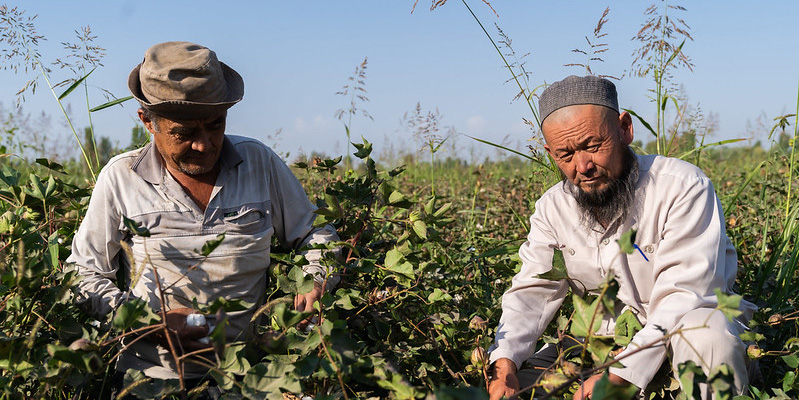
The sudden and dramatic collapse of the Soviet Union in 1991 saw the emergence of the independent states of Central Asia. For a landlocked and historically interconnected region, the formalising and hardening of new national borders – once open and porous – has had a huge impact on regional cooperation and stability.
Localised, border conflicts over the control of resources, particularly around irrigation water and grazing lands, are increasingly affecting local, regional, and international relations.
With much of the world rediscovering this forgotten region due to the colossal ‘Belt and Road Initiative’ being implemented by the Chinese government, I travelled to the troubled border regions of Kyrgyzstan, Tajikistan and Uzbekistan to find out more about how the Aga Khan Foundation (AKF) and its partners are working with border communities to address complex challenges facing people living in the borderlands of the former Silk Road.
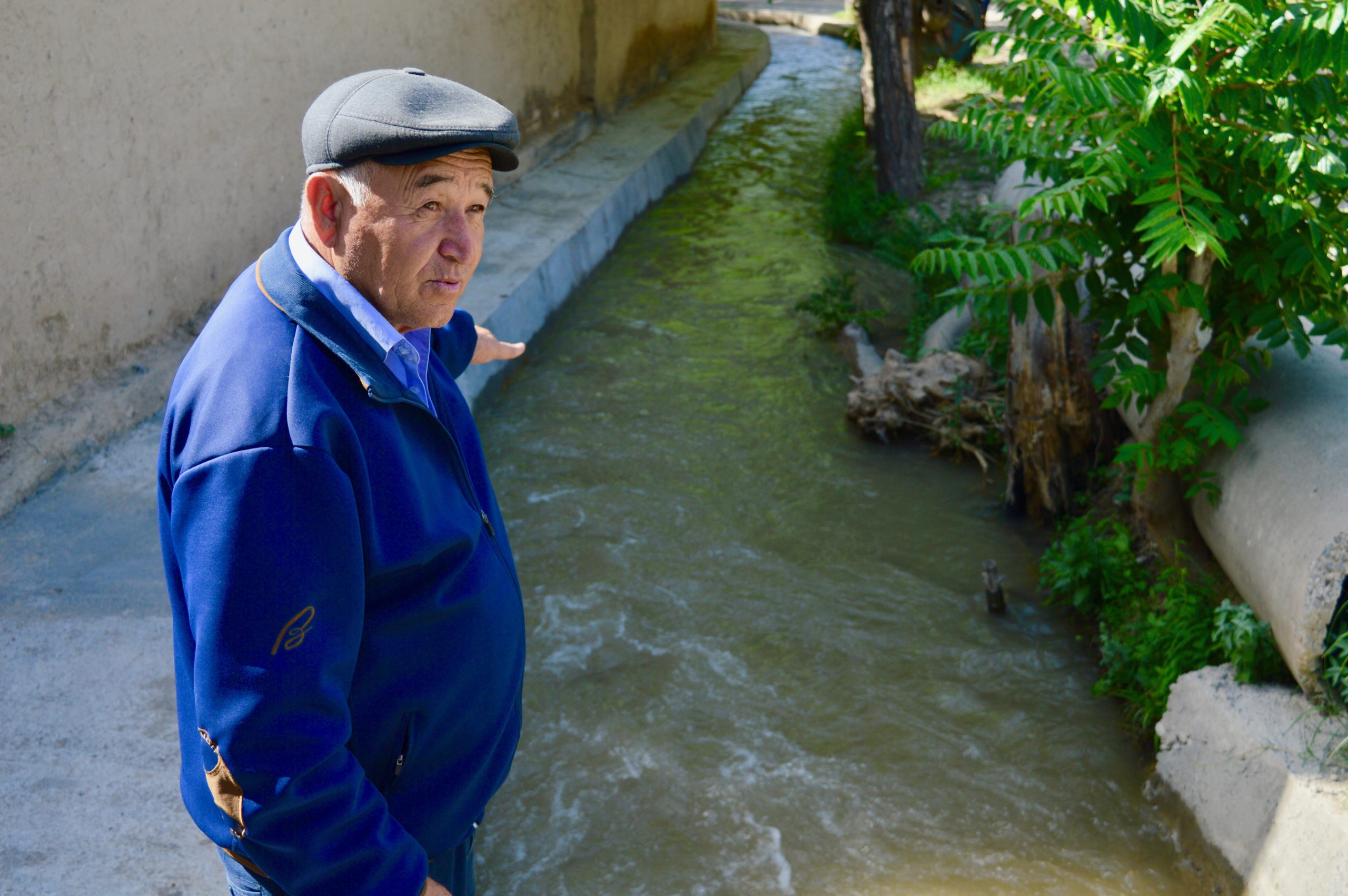
Criss-cross border, divided communities
The Soviet era saw massive industrialisation and investment in infrastructure and public services in Central Asia, but left a complex legacy of ethnic tension and environmental problems.
Tortuous, centrally planned borders criss-cross the region, often leaving Uzbek, Kyrgyz and Tajik communities on different sides of increasingly harder borders, but reliant on the same shared natural resources of land and water.
As the head of the district water department in Ferghana on the Kyrgyz side of the Kyrgyz–Uzbek border explains:
“A significant part of the population here are Uzbeks. The rest are Kyrgyz. We grew up together. We are the same people. Lots of people have family relations across the border. My sister married an Uzbek and lives in Uzbekistan.”
“When the Soviet system ended, governance of water collapsed. Families were taking water as they wanted. Irrigation canals were badly damaged.”
Kyrgyz resident
Water for irrigating the primary crop in the region, wheat, and land for grazing livestock are under intense pressure, but sources have been partitioned across hard borders. He continued:
“During the Soviet era people were collectivised and water was piped directly to collective farms. When the Soviet system ended, governance of water collapsed. Families were taking water as they wanted. Irrigation canals were badly damaged.”
In the ensuing collapse, government budgets disappeared overnight, and transition from a state centric model of free services to a market economy saw the establishment of community-run Water User Associations (WUA), to relieve pressure on local government. As a local WUA member in Osh district explained:
“The local government couldn’t afford to manage water anymore. In the past water was free. But slowly fees were introduced. There was a lot of resistance. People said ‘why should we pay for water from God?’ We had to establish a conflict mitigation committee to deal with disputes in the community over access to water.”
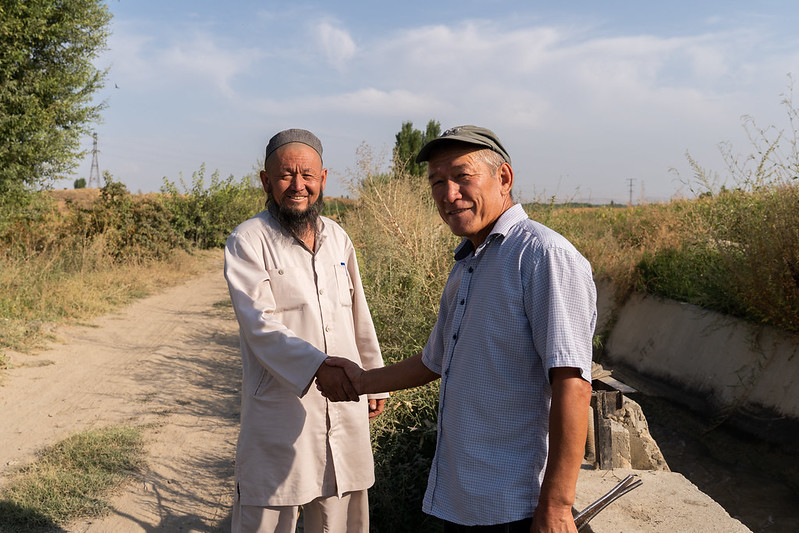
WUAs are elected bodies and local farmers pay a small service fee to be members. They exist on all sides of the border and their role in mediating local conflict has become essential to ensuring access to water and heading off resource disputes in their respective territories.
The legacy of the new borders has also seen clusters of marooned ‘enclaves’, concentrated around the fragile borders of Kyrgyzstan, Tajikistan and Uzbekistan, which became flashpoints that were part of the cause of riots in 2010. This instability led to the closure of the Uzbek-Kyrgyz border.
As the head of water department emphasises: “the closing of the border meant trade with Uzbekistan slumped. Local farmers had to raise the price of goods.”
“Before we couldn’t keep track of payments…We are now able to collect fees on time, keep the water flowing and pay ourselves a wage.”
Head of local Water User Association (WUA)
Investing in platforms for cooperation
With the support of UKAid from the British Foreign Commonwealth & Development Office (FCDO), AKF is working with the Mountain Society Development Support Programme (MSDSP) and local grass roots organisations, CAMP Alatoo and the Roza Otunbaeva Initiative (ROI), the University of Central Asia (UCA) as well as the Accelerate Prosperity initiative, to tackle the sources of resource instability in the border areas of Kyrgyzstan and Tajikistan.
The programme entitled ‘Improving stability and natural resource management in Tajikistan and Kyrgyzstan’ has been working with local organisations such as the WUAs, Community Drinking Water Users Union (CDWUU) and Pasture User Associations (PUA) to improve access to and management of irrigation water, drinking water and grazing lands by rehabilitating existing infrastructure in the border areas affected by conflict.
The programme has rehabilitated 109 sites to date.
In addition, and in close collaboration with Water Department under the Ministry of Agriculture of the Kyrgyz Republic, the programme works to strengthen WUAs and local government bodies to help to improve the management and distribution of these shared natural resources, mitigating potential instability and resource conflict through ensuring predictable supply and access.
In the final year of the project, regional business and enterprise development initiative Accelerate Prosperity joined the programme to pilot an approach to enhance the effectiveness and efficiency of WUA and CDWUU services through application of entrepreneurship and business growth principles to improve service delivery.
The programme has one further to partner with ROI who have established ‘jailoo kindergartens’ on pasture lands in Kyrgyzstan that provide education services while accompanying parents herding cattle on high altitude pastures.
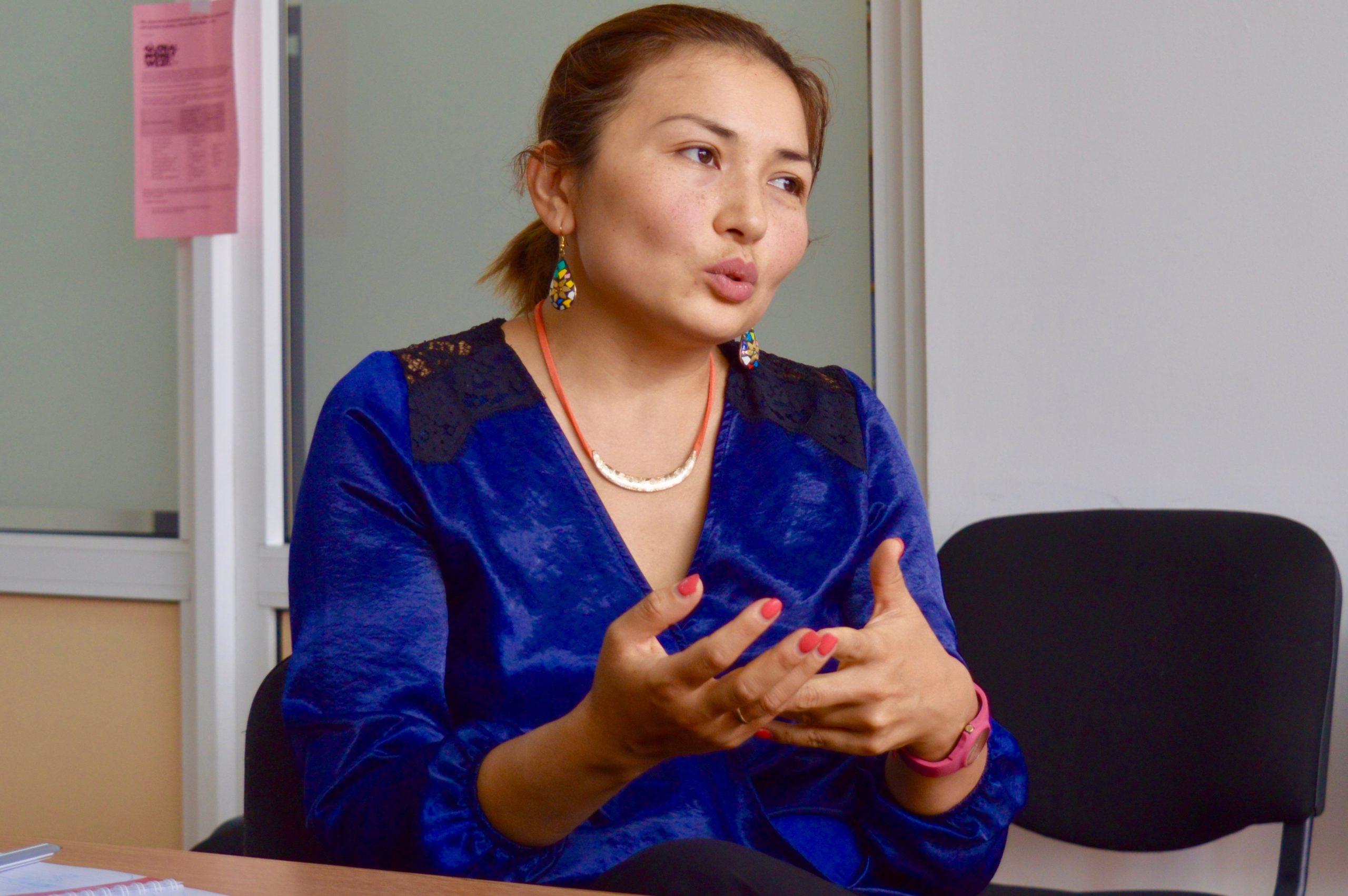
More than 300,000 people in Tajikistan and Kyrgyz Republic have benefitted to date from the programme, through improvements to irrigation canals, drinking water systems, access routes to pasture lands, as well as to improved pasture infrastructure for livestock such as veterinary and watering sites.
As the WUA head we I spoke with described: “I heard about the project on television. We’ve received training and mentoring from the programme that has helped us develop accounting and record keeping skills. Before we couldn’t keep track of payments. We couldn’t even pay our own salaries. We are now able to collect fees on time, keep the water flowing and pay ourselves a wage.”
“Perceptions are being clouded to focus only on the issue of ethnic conflict. But really this is an agricultural challenge.”
Dr Asel Murzakulova
Senior Research Fellow, University of Central Asia
Reframing the issue
The programme also generates research that can shed light on the underlying issues and drivers of instability in the region. Action research has revealed the importance of reframing the conflict. As Dr. Asel Murzakulova, Senior Research Fellow at partner UCA explained:
“Perceptions are being clouded to focus only on the issue of ethnic conflict. But really there is an agricultural problem here that has existed since long before the collapse of the USSR. The land is already intensively overused. If we only see the issue through the lens of security, we miss the fact that this is fundamentally an issue of natural resource management.”
With this in mind, UCA stresses the need to approach the problem as an ‘Agricultural crisis’.
“There are problems between Kyrgyz and Kyrgyz villages, and between WUA and other WUA. It is not just an ethnic issue, it is natural resource management issue and it is affecting everyone. But people need help now, they can’t wait. The whole region is water and resource poor and need solutions. The Batken region has the highest rate of outward migration and poverty in the country. Climate change is only intensifying the pressure on these resources.” explains Dr. Asel.
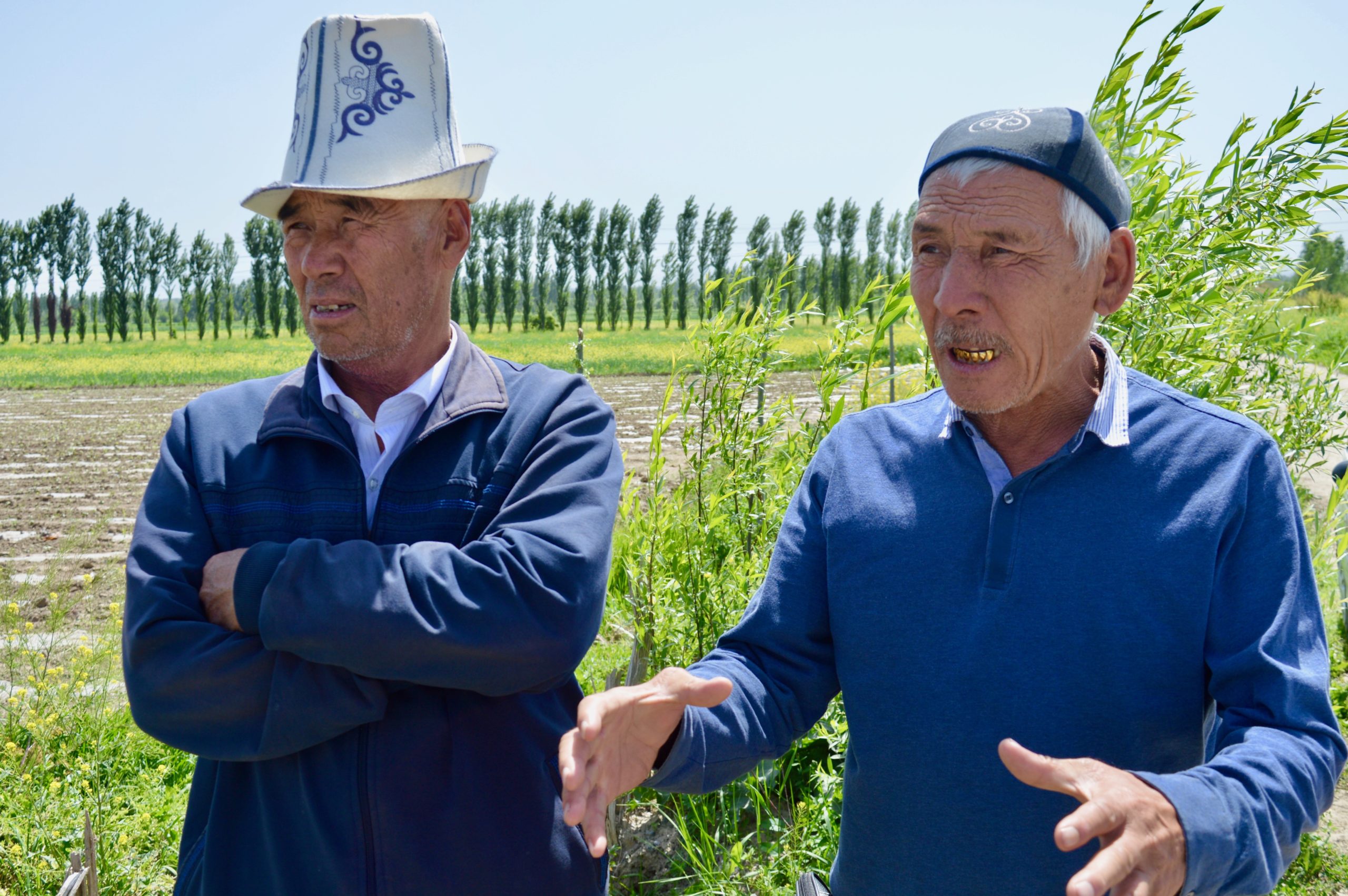
Increasing connectivity and cooperation for the future
The recent, remarkable pace of opening up and reforms taking place in Uzbekistan perhaps provide an example of what is possible with increasing regional connectivity and cooperation in Central Asia.
Through investment in local civil society organisations and the seeking out of opportunities to promote cooperation between communities over shared natural resources, AKF, MSDSP and their partners are strengthening institutions that can provide local and regional platforms for cooperation.
In meeting such looming existential challenges thrown up by climate change, the Belt and Road Initiative, and now the social and economic fallout of the COVID-19 pandemic, such institutions and civic groups will become only more pivotal in ensuring the resilience and adaptability of these all too often marginalised cross-border communities living at the heart of Asia.
The ‘Improving stability and natural resource management in Tajikistan and Kyrgyzstan’ programme ran from 2016-2020, with a budget of 3.3m GBP. It works with local organisations to improve access to and management of irrigation water, drinking water and grazing lands by rehabilitating existing infrastructure in cross-border areas affected by conflict.



Support our work Your donations are helping us build a future where we all thrive together.